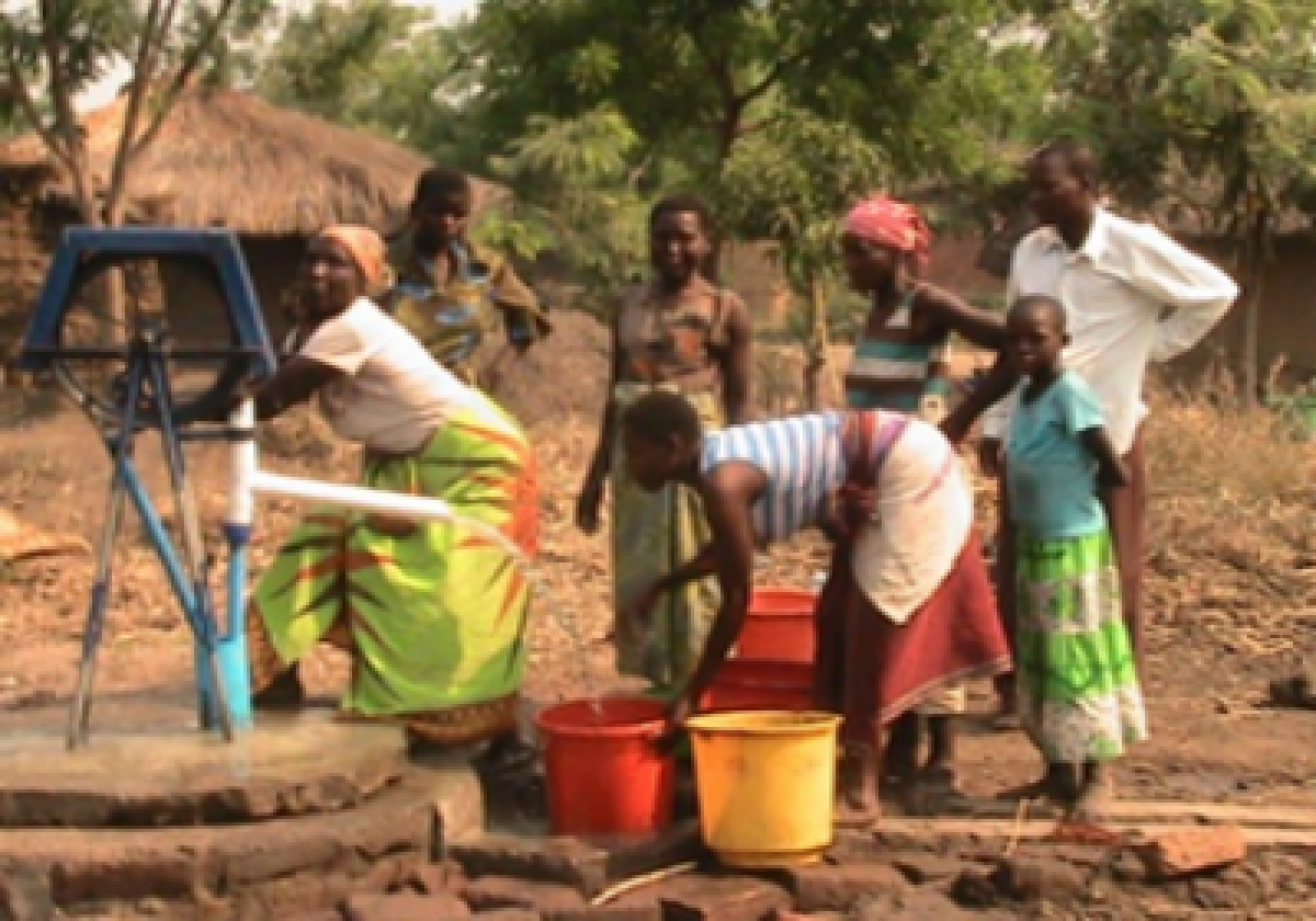
SHARE
It is mid-morning and the temperatures are uncomfortably hot in the Mpomba area of Nsanje district in southern Malawi. Sixty-year-old resident Televina Zuwawo stands proudly as she waits to draw water from a newly dug borehole, a specially crafted narrow shaft drilled deep into the ground for extracting clean water. Zuwawo can hardly believe that clean water -- normally hard to come by at this time of year -- is now easily accessible.
“I never expected that in my lifetime the problem of water in my area would ever be solved,” said Zuwawo. “I am so thankful that our newly elected councilor came together with other leaders to make this happen.”
Naturally occurring water sources normally dry up in the October heat. And even when water is available, it is not always safe to drink, which forces residents to choose between dehydration or a heightened risk of contracting waterborne diseases.
While officials are frequently elected based on tribal allegiances, the most recent election in Mpomba, last May, signaled an important shift: campaigns centered around political party platforms that focused on issues rather than identity. The Mpomba wells were conceived and implemented by local officials who were elected on the promise of bringing clean water to the community. These were the first elections in which Malawians elected local government representatives.
This evolution was spearheaded by the Tiphedzane Community Organization, a group in Nsanje District that works on community governance, health and development projects. Through its Civic and Voter Education (CVE) campaign, Tiphedzane and 30 other civil society organizations across the country, reached out to both citizens and politicians with messages that encouraged voting and campaigning based on issues. One of their goals was to incorporate more people into the electoral process.
Activities included pre-election meetings among community leaders to discuss issues of concern to citizens, meetings between politicians and local constituency groups, public debates between candidates, and the signing of social contracts outlining candidates’ development priorities.
George Dumba, the newly elected councilor for Dinde ward that covers Mpomba, was among the participants.
“As a candidate competing for the position of councilor, the CVE project provided me an opportunity not only to engage with citizens during the electoral campaign, but also to understand that access to water was a top priority for the community,” said Dumba. “This in turn influenced me to rank this as the first issue to prioritize once elected.”
After winning, Dumba followed through on his campaign promise and, together with community leaders and their member of parliament, worked to ensure that three boreholes were constructed in Mpomba.
“We are extremely grateful to both our newly elected MP and councilor for providing us with safe water,” said the Mpomba village group headman, also named Mpomba. “This will improve the lives of the people.”
Tiphedzane’s work has not stopped since the election. It continues to support issue advocacy campaigns and efforts to ensure that elected officials are held accountable to their campaign promises.
The CVE campaign was supported by NDI with funding from both the United Kingdom Department for International Development (DFID) and the United States Agency for International Development (USAID).
Published on Feb. 10, 2015


